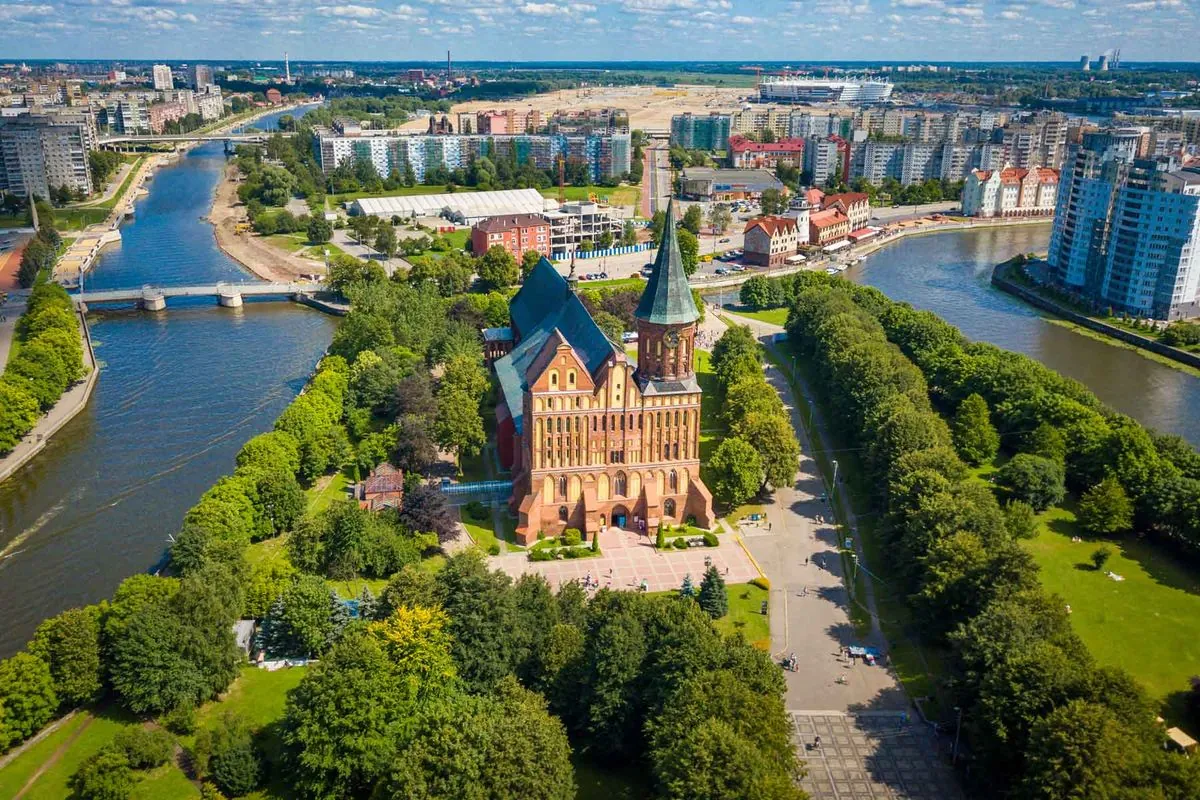In a recent development, Russia's Kaliningrad exclave, nestled between Lithuania and Poland, is grappling with supply challenges stemming from Western sanctions. Nikolai Patrushev, a close aide to President Vladimir Putin, visited the region on Friday, September 27, 2024, to assess the situation.
Kaliningrad, formerly known as Königsberg, became part of the Soviet Union in 1945 and was renamed in 1946. This strategic region, home to approximately 1 million people, hosts Russia's Baltic Fleet, established in 1703 by Peter the Great. The exclave's unique geographical position makes it closer to Berlin than to Moscow, adding to its geopolitical significance.
During his visit, Patrushev expressed concerns about the impact of Western sanctions on Kaliningrad's supply chains. He stated that 80% of essential goods could no longer be transported by land, forcing Russia to rely heavily on sea routes. The official accused Western nations of attempting to isolate the region and disrupt its connections with mainland Russia.
"The countries of the West are trying to complicate cargo and passenger transit to Kaliningrad to the maximum extent in order to isolate the Kaliningrad region and to disrupt transport links with the main territory of Russia."
To address these challenges, Russia has implemented alternative transport solutions. A ferry service now operates between Kaliningrad and a port in the Leningrad region, facilitating the movement of goods. Additionally, efforts are underway to transition the transit of diesel fuel, cement, and other materials to a specialized tanker fleet.
Looking ahead, Russia plans to construct two rail and road ferries to enhance transport links with the exclave. These vessels are expected to be completed by 2028, potentially alleviating some of the current logistical difficulties.
Kaliningrad's unique status as a semi-enclave, the only such territory in Europe, adds complexity to its situation. The region, which spans approximately 15,100 square kilometers, is known for its strategic importance and natural resources. It boasts the world's largest deposits of amber and is home to the westernmost point of Russia.
Despite the current challenges, Kaliningrad has a rich history and cultural significance. It was the home of philosopher Immanuel Kant and features the Curonian Spit, a UNESCO World Heritage Site. The region has also played a role in modern events, hosting four games during the 2018 FIFA World Cup.
The exclave's economic importance is underscored by its special economic zone status, granted in 1996. Kaliningrad's port, which remains ice-free year-round, is crucial for Russian maritime activities in the Baltic Sea. The region also operates in its own time zone, distinct from Moscow time, reflecting its unique position.
As tensions between Russia and the West continue, the situation in Kaliningrad remains a focal point of geopolitical interest. The region's future development and its connections with mainland Russia will likely depend on the evolving international landscape and Russia's ability to adapt to the current sanctions regime.
